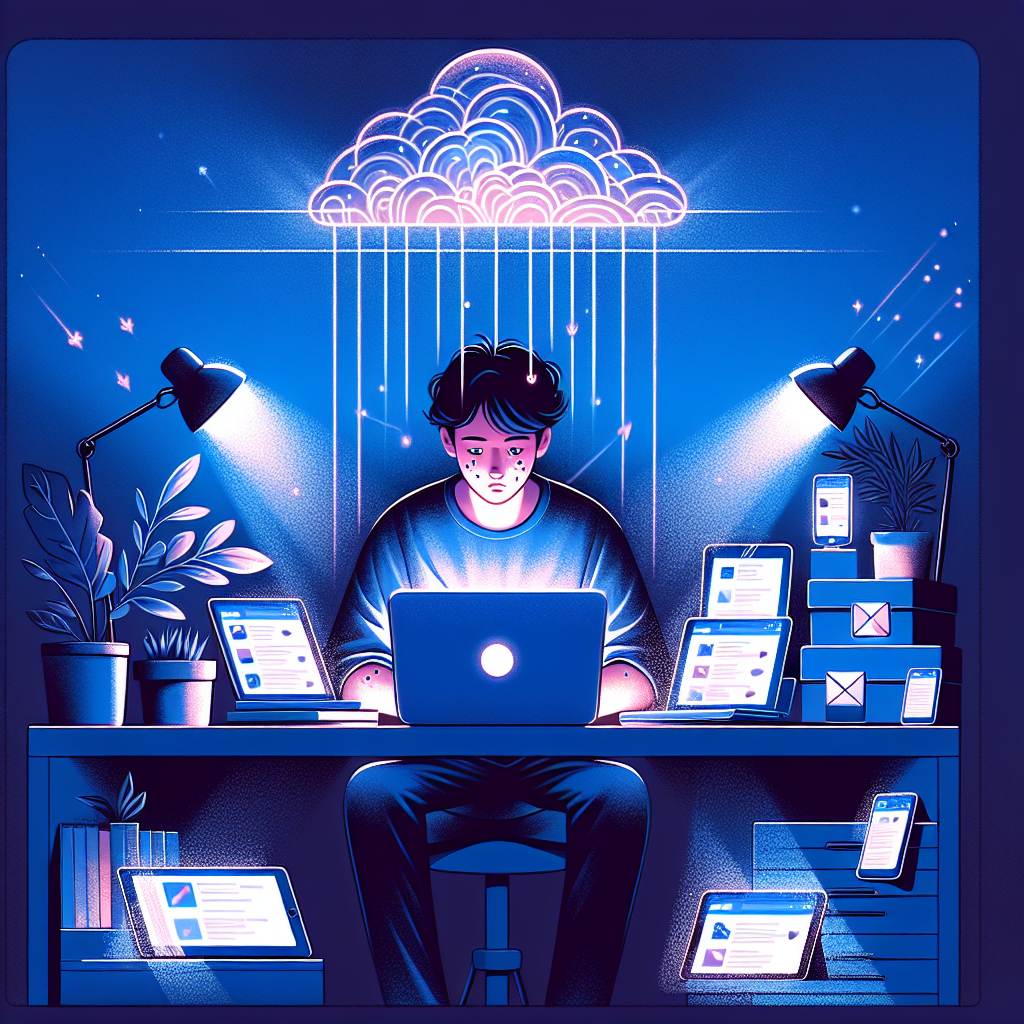How to Cure Acne: The Impact of Digital Overload
In today’s digitally saturated world, our skin often bears the brunt of our screen-centric lifestyles. Could digital overload be a hidden culprit in the battle against acne? Let’s delve into how excessive screen time might be exacerbating your skin woes and explore effective strategies to achieve clearer skin. 📱✨
Table of Contents
1. Introduction
2. Understanding Digital Overload
3. The Connection Between Digital Overload and Acne
4. Strategies to Combat Digital-Induced Acne
5. The Importance of a Holistic Approach
6. Conclusion
7. FAQs
Introduction
Acne is a common skin condition affecting millions worldwide, characterized by pimples, blackheads, and cysts. While numerous factors contribute to acne, from hormonal changes to diet, a less-discussed trigger is digital overload. As we spend increasing hours glued to our screens, understanding this connection becomes crucial. Let’s explore how digital habits might be affecting our skin and discover practical tips to help manage acne effectively.
Understanding Digital Overload
Digital overload refers to the excessive use of digital devices, leading to mental and physical fatigue. This phenomenon is prevalent in today’s society, where smartphones, tablets, and computers are integral to our daily lives. The average person spends over seven hours a day in front of a screen, which can lead to a range of issues, including eye strain, sleep disturbances, and, yes, even skin problems. But how exactly does this happen?

The Connection Between Digital Overload and Acne
While the direct link between screen time and acne is not fully established, several indirect factors may contribute to breakouts:
1. Blue Light Exposure: Prolonged exposure to blue light emitted from screens can lead to increased oxidative stress on the skin. This stress can accelerate skin aging and potentially trigger inflammation, a key player in acne development. 🔵
2. Stress and Hormonal Imbalance: Digital overload often leads to stress, which in turn can disrupt hormonal balance. Stress-induced hormones like cortisol can increase oil production in the skin, clogging pores and resulting in acne. 😟
3. Inadequate Sleep: Excessive screen time, especially before bed, can interfere with sleep patterns. Poor sleep impacts skin health by impairing its ability to repair and regenerate, exacerbating acne conditions. 😴
Strategies to Combat Digital-Induced Acne
While digital overload can be daunting, adopting mindful practices can help mitigate its impact on your skin. Here are some strategies to consider:
1. Limit Screen Time: Implement digital detox periods throughout your day. Try the 20-20-20 rule: every 20 minutes, look at something 20 feet away for 20 seconds. This can help reduce eye strain and give your mind a break. 🕒
2. Use Blue Light Filters: Invest in screen protectors or glasses that filter blue light. Many devices also offer built-in blue light reduction settings that can be activated, especially during nighttime use. 🕶️
3. Establish a Skincare Routine: Use products rich in antioxidants to combat oxidative stress. Ingredients like vitamin C and E are great for neutralizing free radicals. Regular cleansing and moisturizing can also help maintain skin health. 🧴
4. Prioritize Sleep: Set a digital curfew at least an hour before bed. Engage in relaxing activities like reading or meditation to promote better sleep quality. 🌙
The Importance of a Holistic Approach
While addressing digital overload is essential, adopting a holistic approach can further enhance your efforts in managing acne. Consider these additional tips:
1. Balanced Diet: Incorporate foods rich in omega-3 fatty acids, zinc, and antioxidants to support skin health. Hydration is equally vital, so drink plenty of water throughout the day. 🥦💧
2. Regular Exercise: Physical activity helps reduce stress and improves blood circulation, contributing to clearer skin. Aim for at least 30 minutes of exercise most days of the week. 🏃♀️
3. Mindfulness Practices: Engage in activities like yoga or meditation to manage stress levels. Lower stress can lead to better hormonal balance and reduced acne flare-ups. 🧘♂️
Conclusion
In our digital age, achieving clear, healthy skin requires understanding the multifaceted impact of digital overload. By integrating mindful digital habits with a balanced lifestyle, you can significantly improve your skin health and overall well-being. Remember, every small step counts towards a healthier you. 🌟
FAQs
Q1: Can blue light from screens really cause acne?
While blue light doesn’t directly cause acne, it can exacerbate skin issues by increasing oxidative stress and inflammation, which may lead to breakouts.
Q2: How long should digital detox periods be to see an improvement in skin health?
Start with small increments, such as 30 minutes to an hour per day, and gradually increase based on your comfort and lifestyle. Consistency is key.
Q3: Are there specific skincare products recommended for those with high screen time?
Look for skincare products with antioxidants like vitamin C, niacinamide, and green tea extract to combat oxidative stress and inflammation.
Q4: Is it necessary to completely eliminate screen time to see benefits?
Not necessarily. Moderation and mindful usage, combined with proper skincare and lifestyle habits, can significantly improve skin health without eliminating screens entirely.
